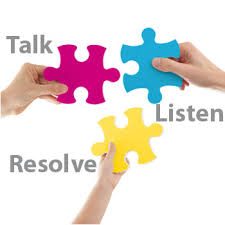 At Gourock primary school we encourage a restorative approach to dealing with conflict. Children and young people require the opportunity to hear about and face up to the harm and distress they have caused others.
At Gourock primary school we encourage a restorative approach to dealing with conflict. Children and young people require the opportunity to hear about and face up to the harm and distress they have caused others.
Restorative approaches are built on values which separate the person from the behaviour. They promote accountability and seek to repair any harm caused in a situation. Research shows that restorative approaches help schools create peaceful learning environments for children to become successful learners, confident individuals, responsible citizens and effective contributors.
Restorative approaches can change the emotional atmosphere in a school and lead to more positive relationships between pupils and between pupils and staff.
A restorative approach may include having a ‘restorative conversation’. These conversations may happen during the school day and staff will use restorative language and questions to allow children and young people to understand the impact of their behaviours.
More serious incidents may require staff to hold a formal meeting and involve parents or families where appropriate. Examples of questions used are:
- What happened?
- What were your thoughts at the time?
- What have been your thoughts since?
- Who has been affected by what happened?
- How have they been affected?
- What do you need to happen now?
Skills children develop include:
- listening skills
- empathy
- use of language including body language
- understanding situations from another person’s point of view
- using words to solve any conflict
- ownership of solving issues and problems
Through the help of staff, pupils accept responsibility for their actions, recognise the harm and upset caused and are supported to find restorative responses to harmful actions. Developing positive, supportive relationships is key and these can be developed through activities such as circle time and peer support.
Parents can support school by:
- talking to your child about how they manage their behaviours in school
- understand that children learn developmentally, including how they behave and how their behaviour affects others
- understand that everyone learns best when they feel good about themselves. Punishments, whether right or wrong, can make children feel bad about themselves. This can hinder their ability to engage in their learning, including about their behaviour
- encourage your child to see things from other people’s points of view
- encourage your child to be a good friend

